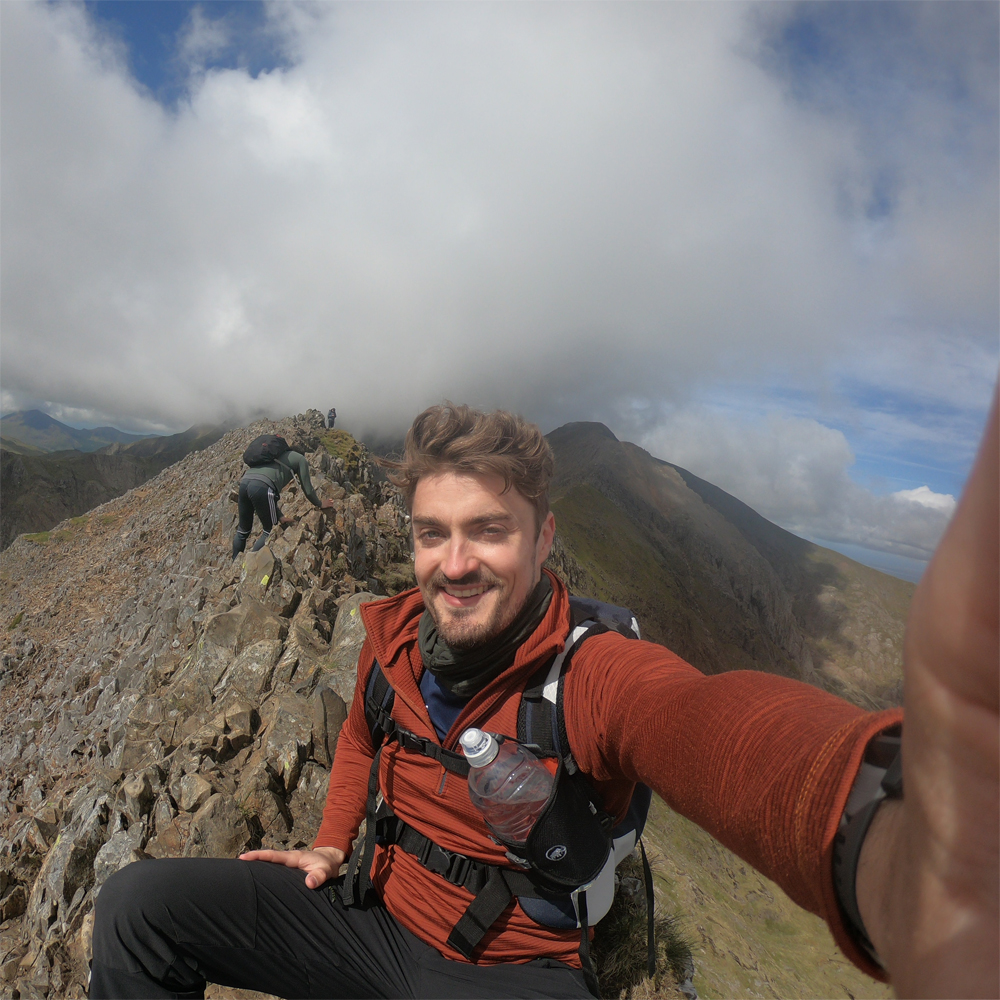Camping for beginners: an introduction to spending nights under canvas
Find out everything you need to know about in this definitive guide to camping for beginners
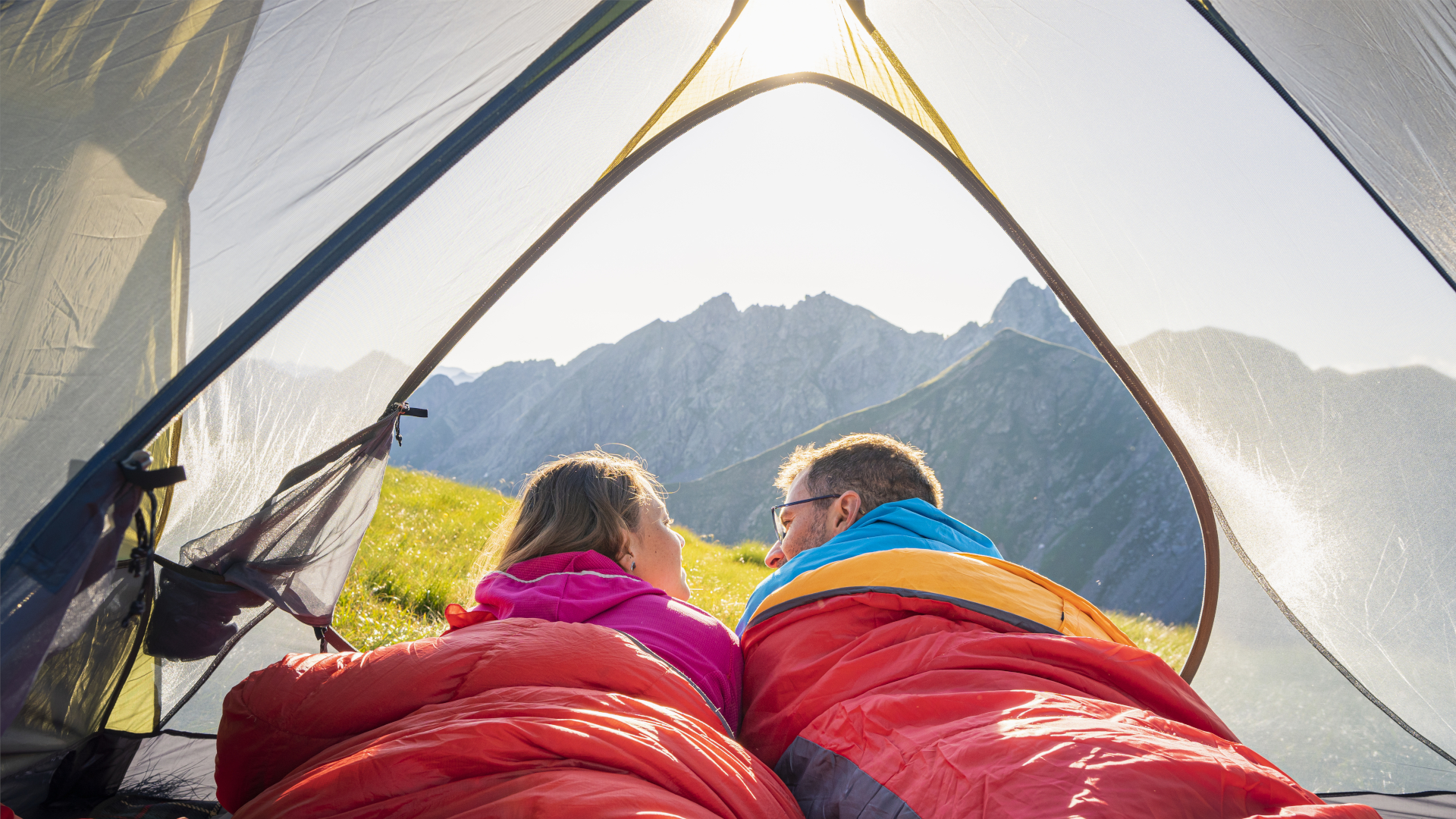
Camping means many things to different people. For some, it’s an affordable way to leave the hustle and bustle of day-to-day life behind and reconnect with nature. For others, it’s a means to an end; a temporary basecamp they can return to after a day spent exploring the nearby landscape.
If you’re new to sleeping under canvas, it can seem pretty daunting, so whatever your reasons for wanting to try it, find out everything you need to know in our guide to camping for beginners.
What is camping?
Camping is a pretty simple thing, which is undoubtedly one of the reasons so many people enjoy it as much as they do. In a nutshell, it’s the act of temporarily sleeping outside for a couple of nights, usually in a tent. It’s a safe, affordable and authentic way of enjoying the great outdoors in the warmer months, and it allows you to have a more adventurous experience than staying in a hotel or caravan. Due to it being something you don’t normally have to book months in advance, it also allows for more spontaneity. You can often reserve spaces at a campsite up to a couple of days before you’re set to arrive, allowing you to jump on the chance to visit an area when you know the weather is going to be fine.
In the United States and the United Kingdom, camping is incredibly popular. In fact, across the US, almost 50 million people went camping in 2021 alone, with almost 60% of all campers sleeping in a tent. In the UK, localised lockdowns and travel restrictions have also resulted in an explosion of campers, with industry watchdogs observing an almost 300% increase in the number of people who took a camping trip between 2019 and 2021.
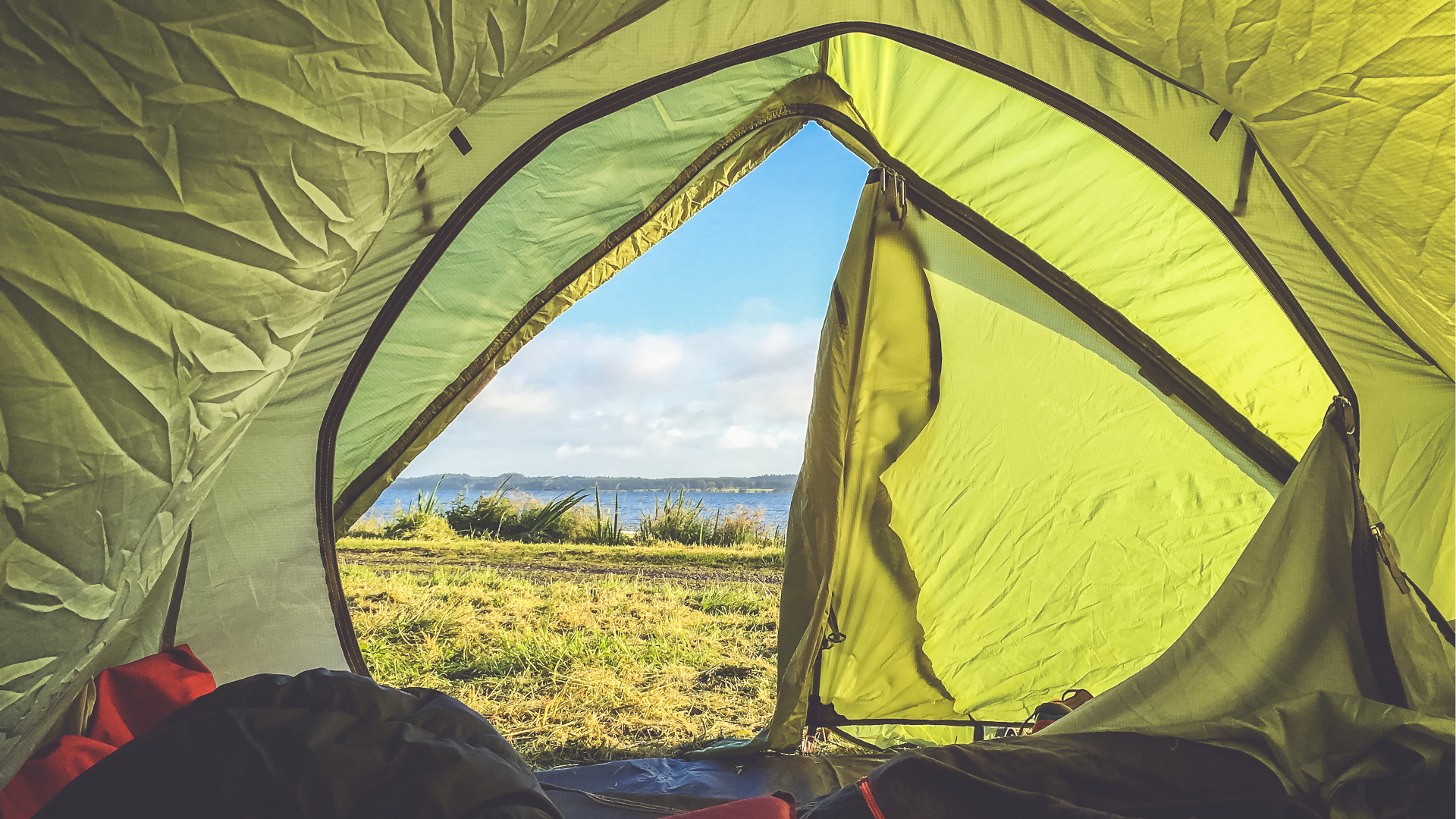
When should I do it?
When starting out, it’s best to stick to more forgiving times of the year, namely late spring, summer and early autumn/fall, otherwise known as camping season. These periods are warmer and have fairly predictable weather patterns, making for more comfortable outdoor experiences and allowing you to bring less kit. For beginner campers, summer offers the best introduction, so we’d recommend trying it for the first time in July or August.
Where should I go?
When it comes to picking the perfect campsite, it’s best to start by deciding where you’d like to explore. The nature of camping means that you probably won’t want to just hang around in the tent all day, so it’s important to be in an area where there are lots of things to do. National Parks are perfect in this regard, especially if you’re a fan of hiking and cycling. In the UK, the Lake District is the most popular national park for camping, with the New Forest and its bike-friendly trail network coming in second.
Once you know the area you want to visit, it’s a good idea to turn to Google to find campsites nearby. Check out the reviews of each and find out what’s on offer on each site. Many come with swimming pools and children’s play areas, while others can be very basic and include little more than a patch of grass for you to pitch your tent. If you plan on having a campfire, check that your chosen site allows this before you go.
All the latest inspiration, tips and guides to help you plan your next Advnture!
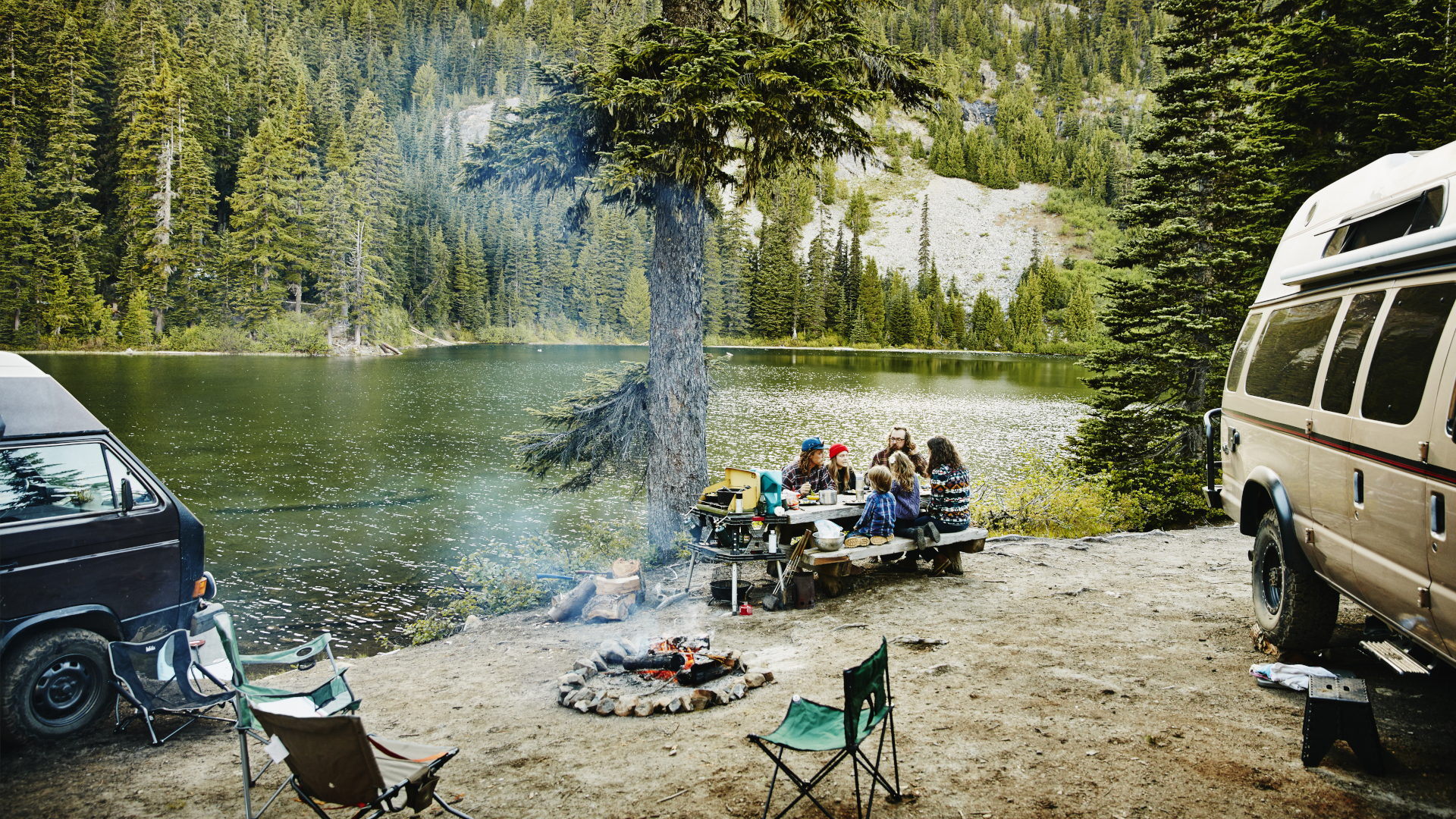
What amenities can I expect?
Camping is normally quite a stripped-back way to spend time outdoors. Therefore, you probably shouldn’t expect five-star facilities on any campsite. When checking on Google, however, take a look to see what’s on offer at each place. Amenities commonly offered on campsites are:
- Toilets and showers
- Sinks for washing up
- A small shop for buying essentials
- A place to grab a simple bite to eat
Increasingly, however, campsites offering experiences akin to wild camping have started to grow in popularity. Found ever more throughout the UK and US, these types of sites offer nothing more than a place to pitch your tent. Therefore, you’ll need to bring all food and drinks you’ll need during your stay with you.
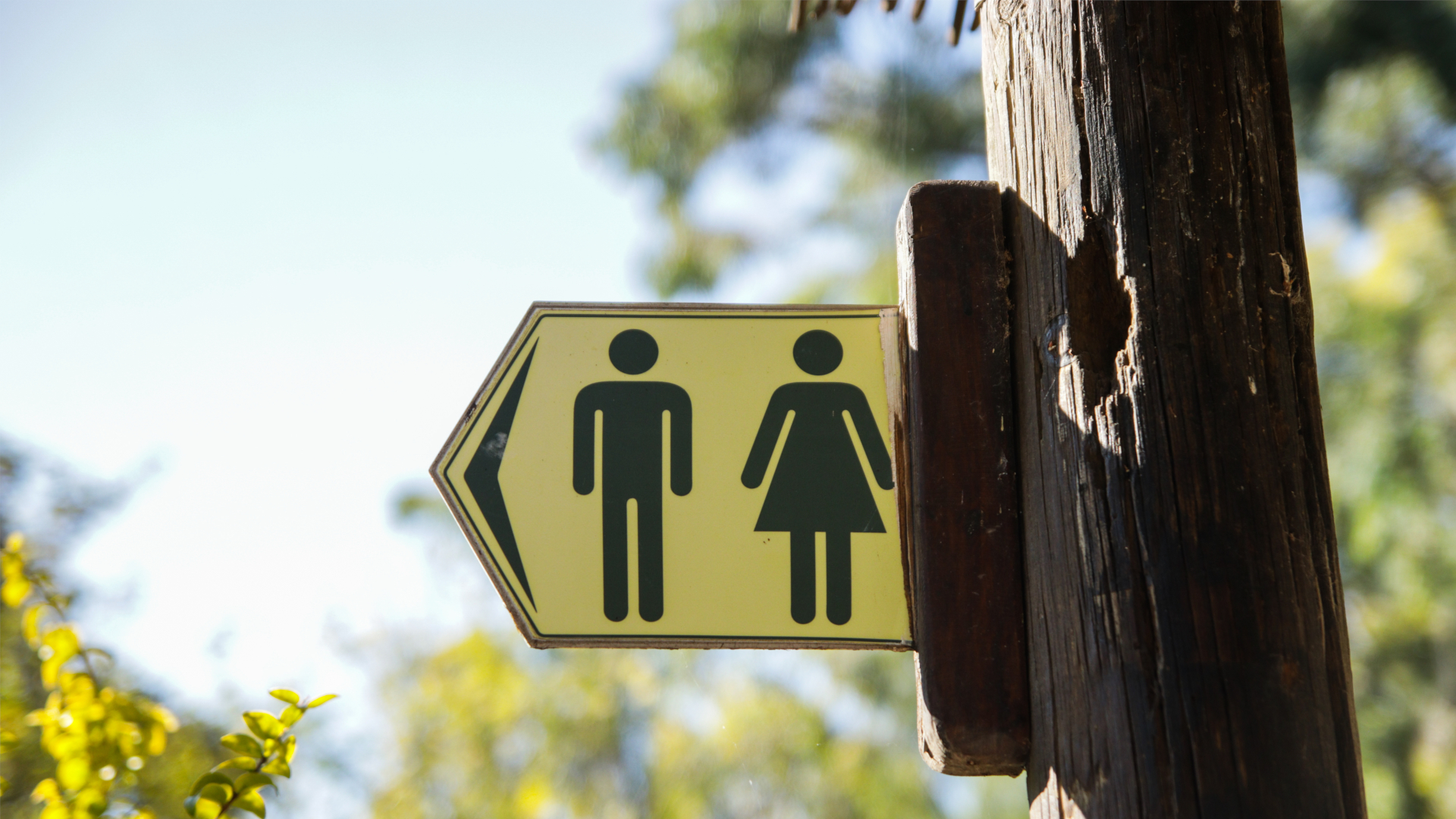
How do I know what I should take?
Packing for a camping trip when you’ve never slept in a tent before is probably the most stressful thing about it. To get a good night’s sleep, it’s important that you trust your gear and have faith that it’ll hold up to the elements. You also need to know that you’ll be warm enough in changing conditions, while simultaneously not packing too much. So, when do you know when certain pieces of gear are overkill?
The best starting point for understanding what to take is always a reliable weather forecast. In the US, the National Weather Service is a go-to for many, though most weather apps will do the job. In the UK, the Met Office is great for getting an idea of what to expect, as is the Mountain Weather Information Service when camping in the more mountainous parts of the country. Just remember: A forecast is exactly that — it’s a prediction of what you’ll likely encounter, not a guarantee. They also tend to be less reliable the further out you look, so keep tabs on changes up to 24 hours before you leave.
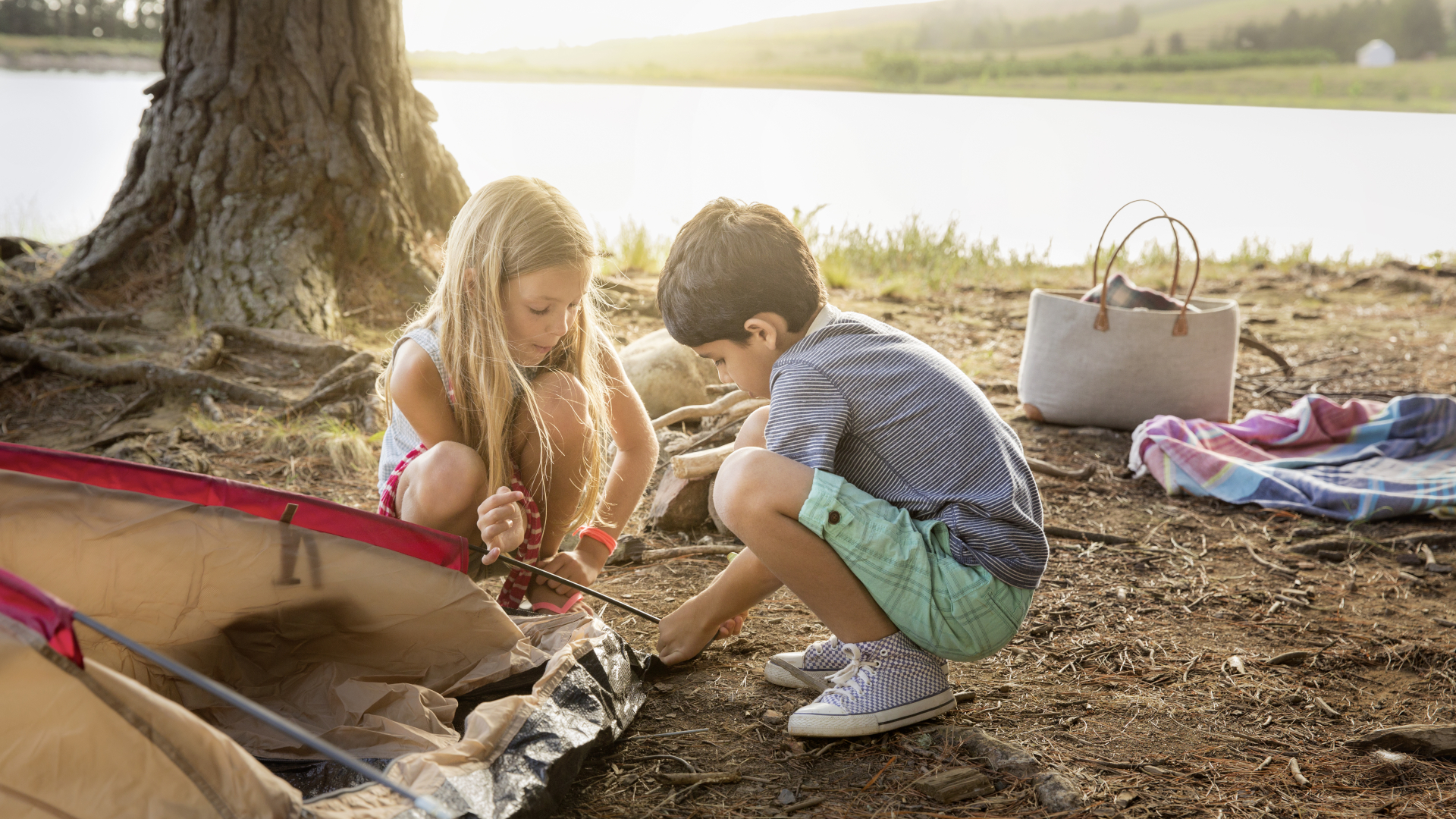
Camping for beginners - your gear list
So, what should you take? In order to be safe and comfortable, certain items are a must. In no particular order, you’re going to need:
For a more detailed list, check out our extensive camping checklist.
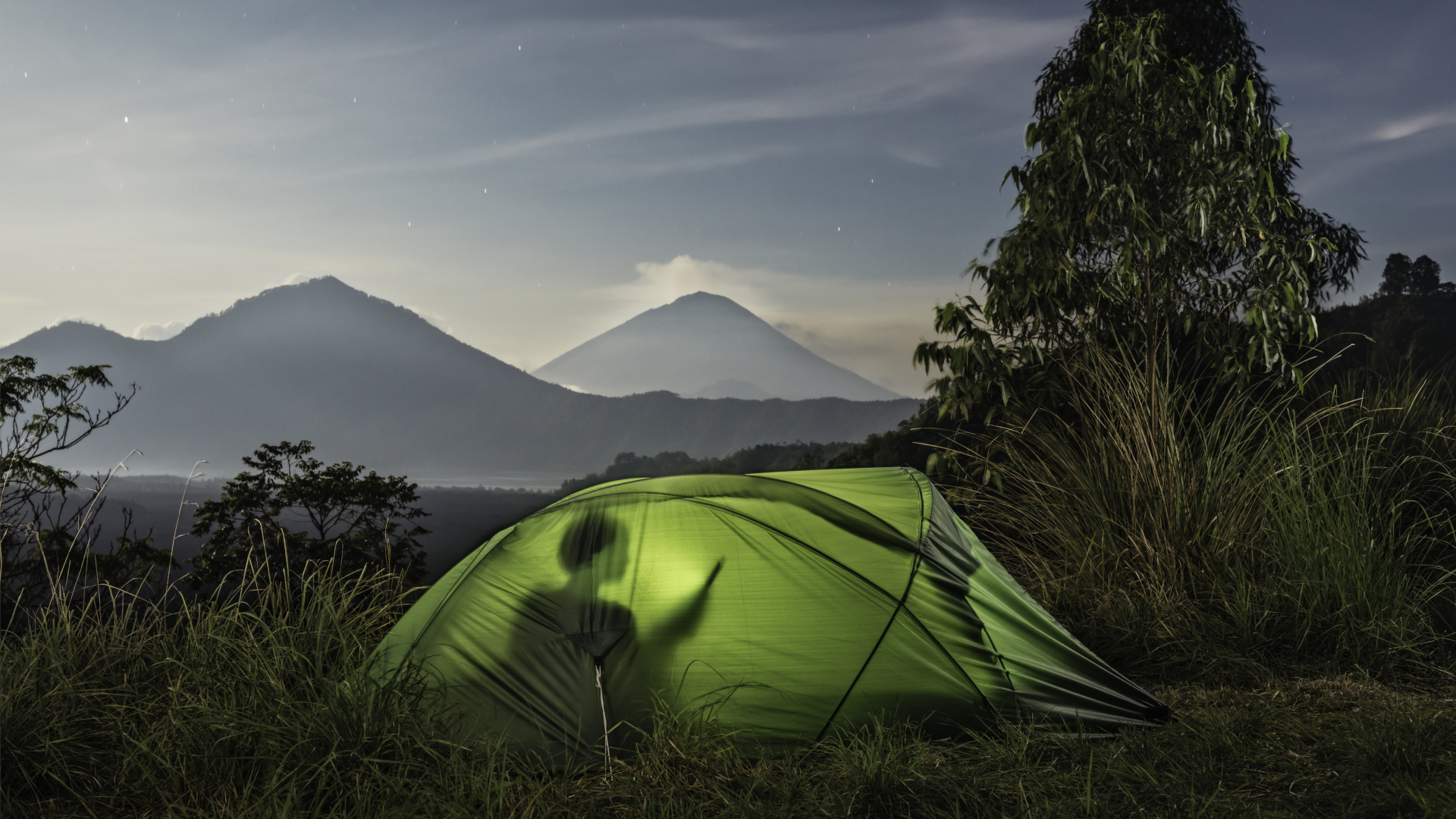
Tips for getting a good night’s sleep
OK, now you’re excited about your first camping trip, let’s address the bad news: You’re more than likely going to have a pretty rough night’s sleep the first time you try sleeping in a tent. The noises, the seeming lack of security provided by a canvas shelter, the exposed feeling of being outdoors – these will be new sensations for you, and they might make it tough for you to drop off. Therefore, try to not let it frustrate you. Trust instead that the more you sleep in a tent, the better you’ll get at it. So don’t put too much pressure on your first time. That being said, there are some practical things you can do to increase how well you sleep.
Firstly, to manage the noise, bring earplugs. The smallest amount of rain is quite loud under canvas, and if the wind blows, it can sometimes sound like you’re rolling down a hill inside a paper bag. Using earplugs to drown these things out will make it a lot easier to drop off, and it’ll prevent you from being woken up by other campers packing up early or being noisy around camp. Also, be sure to follow the same routine you’d practise at home, such as going to bed at the same time, brushing your teeth, reading a good book or watching an episode of your favourite show. Keeping things familiar will make the whole thing feel much more natural, so the novelty of what you’re doing is less noticeable.
Finally, for a calmer mind when you go to bed, keep your new quarters clean and tidy. Studies show that a lot of mess is cognitively draining and can have a huge effect on focus. As this isn’t a great foundation for a sound night’s sleep, pack the things you don’t need away in your bag before you head to bed and separate it from the stuff you’ll need in the morning.
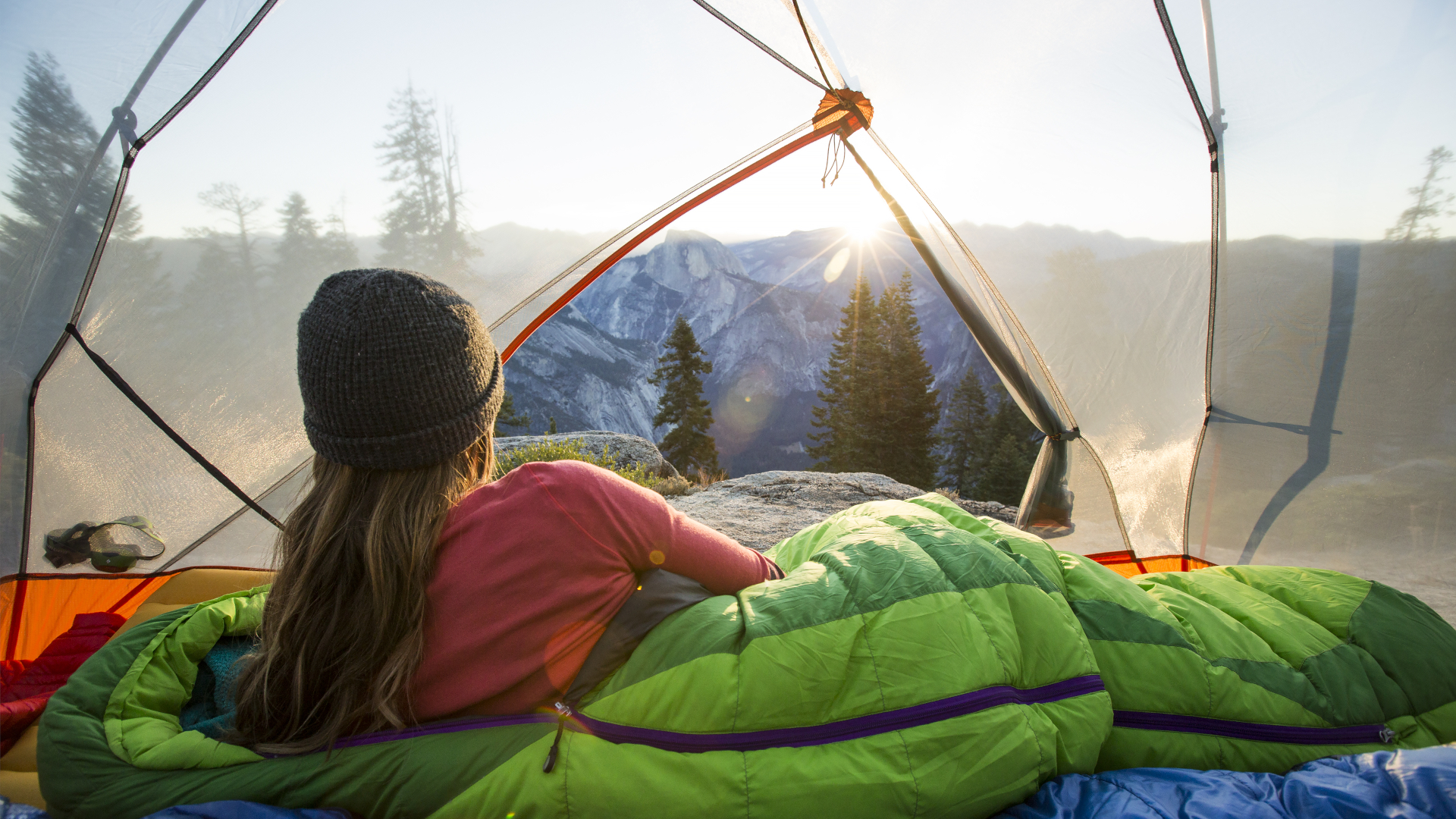
Campsite camping vs wild camping
If you’re excited to get out camping, you may now be wondering whether you should skip the campsite altogether and try wild camping instead. After all, the only distinction between the two is whether you pay for a pitch or camp out on public land, right? While that’s true to a degree, wild camping is a completely different experience to campsite camping. To start, you will need more robust gear that you have complete and utter faith in, and you’ll need to carry all of this out into the wild with you. What’s more, you’ll also need to be comfortable sleeping somewhere completely on your own – irrespective of the noises you may (or may not!) hear in the night. Therefore, if you want to try wild camping but haven’t spent a night in a tent yet, stick to campsites for now. Use the time to familiarize yourself with the gear, with pitching and packing away your tent, and let your confidence in both your kit list and your ability to sleep out in nature build up over time.
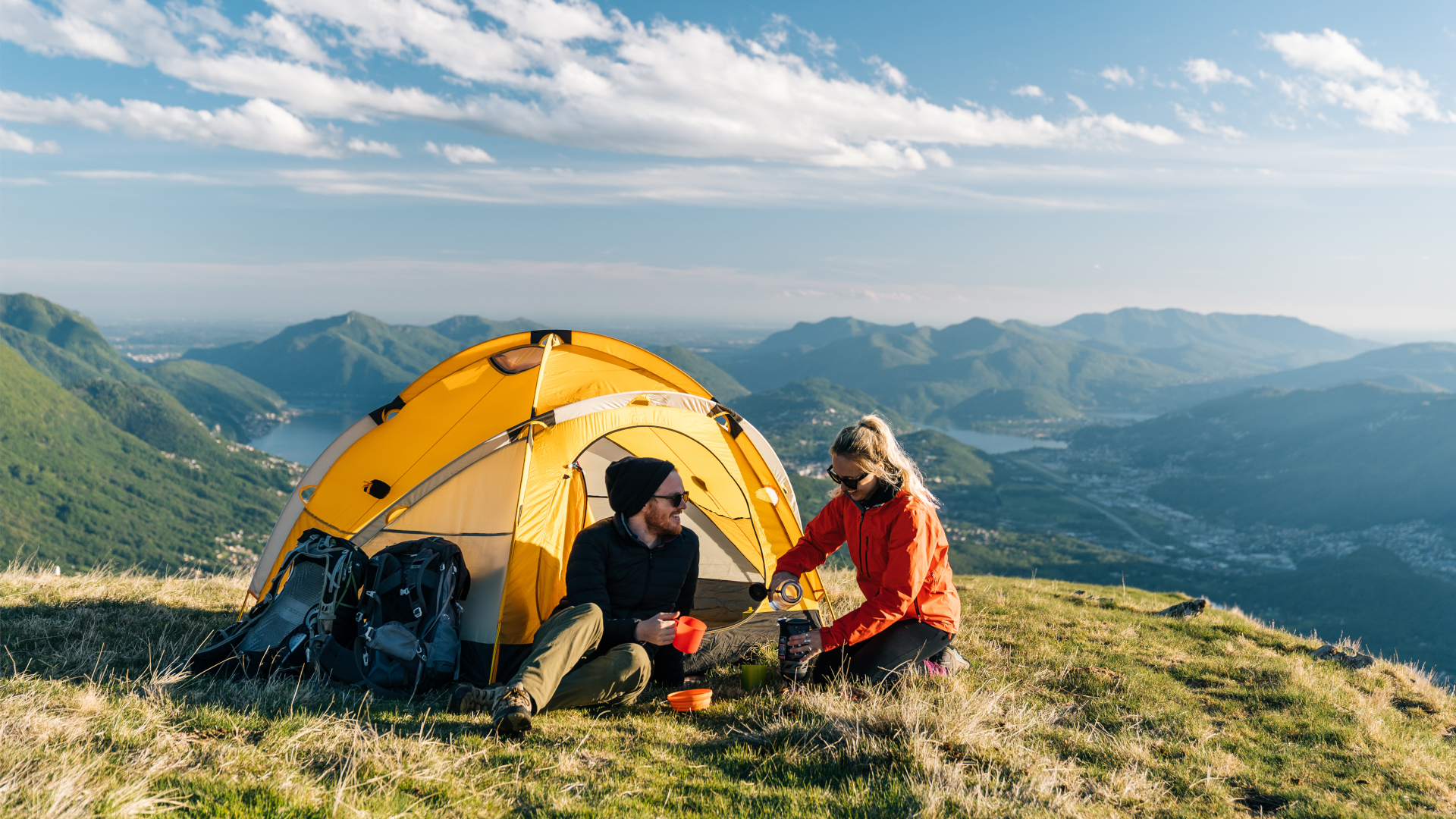
Growing up just south of the glorious Brecon Beacons National Park, Craig spent his childhood walking uphill. As he got older, the hills got bigger, and his passion for spending quality time in the great outdoors only grew - falling in love with wild camping, long-distance hiking, bikepacking and fastpacking. Having recently returned to the UK after almost a decade in Germany, he now focuses on regular micro-adventures in nearby Snowdonia and the Brecon Beacons, as well as frequent trips to the Alps and beyond. You can follow his adventures over on komoot.
